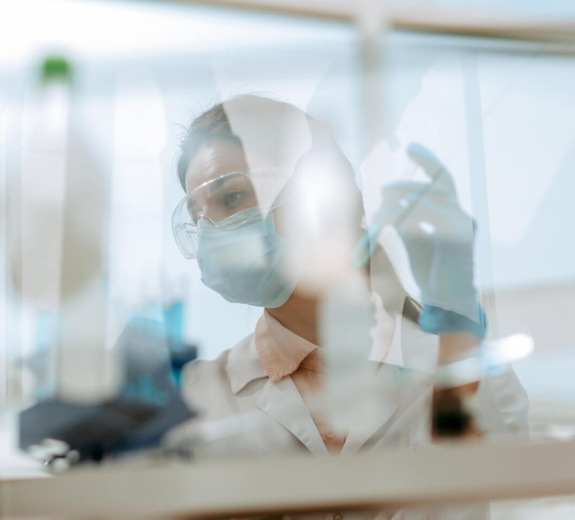
Donor Support Launches Laboratory
As a young, enthusiastic scientist, Jessica Hamerman, PhD, joined Benaroya Research Institute in 2006 ready to delve further into understanding the inflammatory response of a certain type of cell that is an early responder to infections. This inflammatory response is necessary to clear infections, but if it continues unchecked, it can cause problems such as autoimmune diseases or septic shock.
She was passionate about her area of interest and excited to set up her laboratory. However, young investigators can’t get grant funding to start their research because they haven’t generated enough preliminary data showing their ideas are feasible and worth exploring. BRI knew Dr. Hamerman’s postdoctoral work was very promising and offered to provide support to set up her laboratory. The funding came from BRI and anonymous donors and allowed her to buy equipment and supplies to get her lab off the ground.
Several years later, the same donors provided funding over three years to help her continue developing her research. “The donations have helped me immensely,” says Dr. Hamerman. “At first the support helped me get started so I could develop my ideas and provide initial data to the National Institutes of Health and other funding agencies. Later on, I was able to expand my research into other areas and receive additional funding. The environment at BRI is wonderful because you can learn from the other scientists and gain expertise and knowledge.”
She also had the opportunity to meet several times with one of her donors. Although her donors have chosen to be anonymous, they are involved and interested in her progress.
“It Was A Great Experience To Show Him My Work And Share The Advances In Our Research. He Was Very Curious And I Could Demonstrate How His Funding Made Advances In Scientific Understanding.”
Dr. Hamerman is now an associate member at BRI and an affiliate associate professor in the Department of Immunology at the University of Washington School of Medicine. Two graduate students, a postdoctoral student and a staff scientist are learning from her now and on their path to becoming young investigators.
She has broadened her work to look at the inflammatory response in autoimmune diseases in human blood samples from the BRI biorepository. She has discovered several specific proteins that could be targets for therapy to manipulate the immune system to achieve more efficient elimination of infections and to regulate the inflammatory response during autoimmune disease.
These discoveries can be used to help develop vaccines and immune-modulating drugs
to prevent and treat infections as well as to regulate inflammatory response during disease. One of her major discoveries is in lupus, a chronic, systemic autoimmune disease that can affect the joints, skin, kidney and other organs of the body. Coincidentally, her grandmother had lupus, so she is always aware of the personal toll of these diseases.
“Donor support outside of grant funding is essential to BRI,” says Dr. Hamerman. “It supports innovative pilot projects, new technology and young investigators. We just can’t thank our generous supporters enough for accelerating the advancement of medicine and science.”
Immuno-what? Hear the latest from BRI
Keep up to date on our latest research, new clinical trials and exciting publications.


